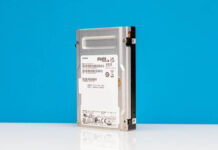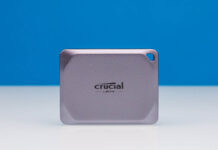SPECworkstation 3.0.2 Storage Benchmark
SPECworkstation benchmark is an excellent benchmark to test systems using workstation-type workloads. In this test, we only ran the Storage component, which is fifteen separate tests.
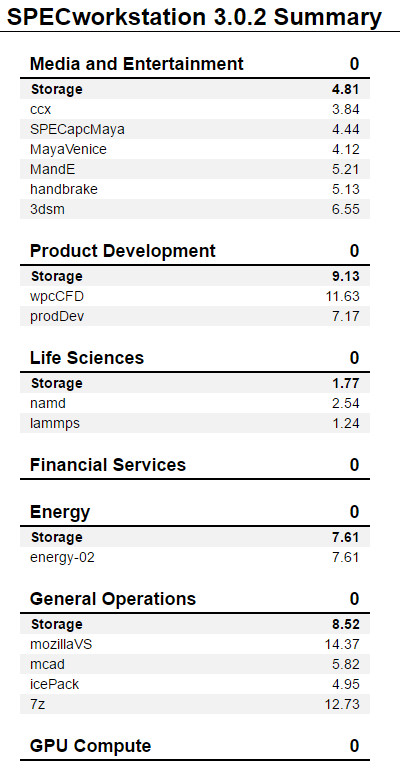
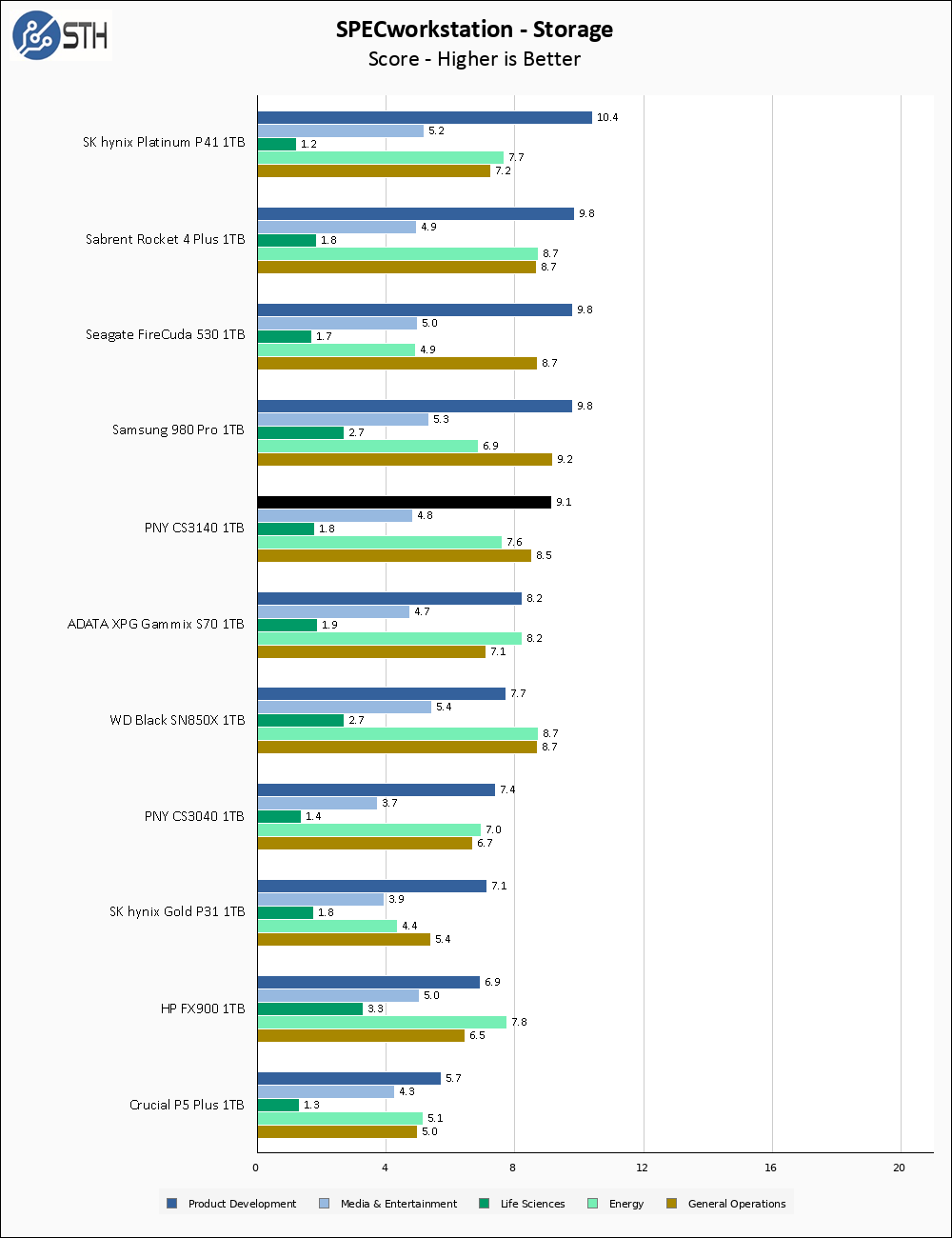
If there is ever going to be a test to differentiate between near-identical drives, it is SPECworkstation. The PNY CS3140 1TB manages to significantly outperform the FireCuda 530 in the Energy test while slightly losing in the others. Good results here, but generally not class-leading in any specific way.
Sustained Write Performance
This is not necessarily a benchmark so much as trying to catch the post-cache write speed of the drive. While I am filling the drive with data to the 85% mark with ten simultaneous write threads, I monitor the drive for the write performance to dip to the lowest steady point and grab a screenshot.
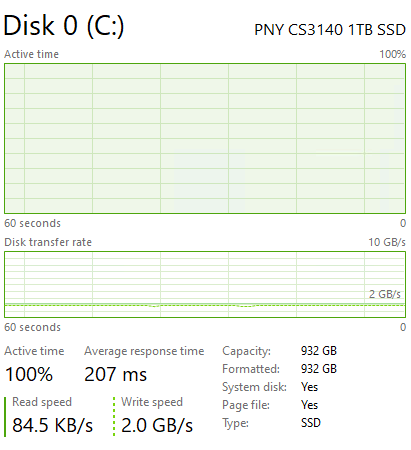
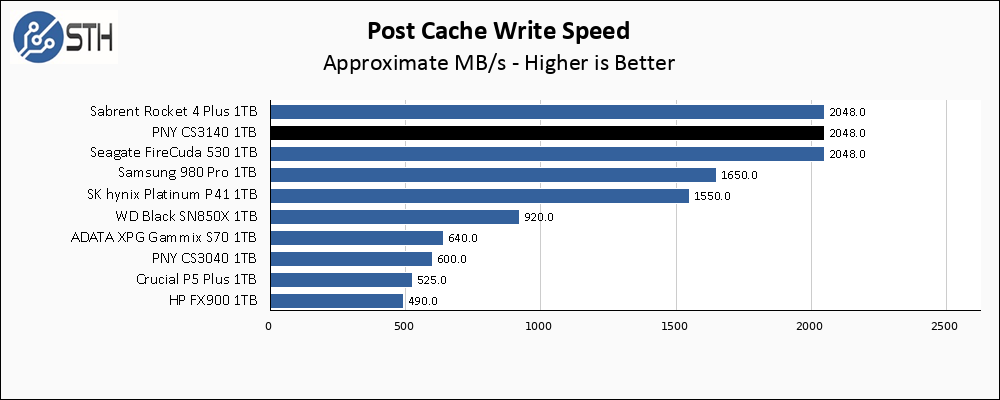
One very good feature the PNY CS3140 shares with its other Phison brethren is best-in-class sustained write speed. Bravo!
Direct Comparisons – Generations Compared
Since the PNY CS3140 is the successor to the CS3040, I figured the comparison could be useful.
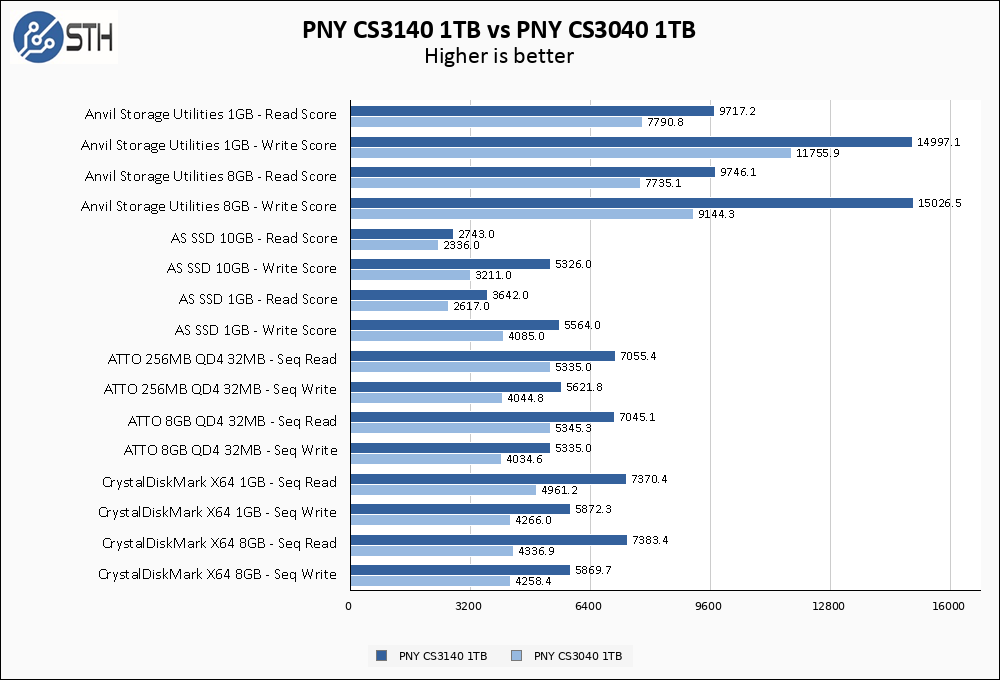
Unlike in the WD SN850X review, where the original SN850 managed to somewhat trade blows with its successor drive, the CS3140 pulls a clean sweep victory over the original CS3040. Thanks to the newer controller, the CS3140 is better in every way.
Temperatures
We monitored the idle and maximum temperature during testing with HWMonitor to get some idea of the thermal performance and requirements of the drive. Please remember that our test bench is an open-frame chassis in a 22C room, but with no direct airflow. As a result, this is not representative of a cramped low airflow case and is instead intended to model temperatures of a drive ‘on its own’.
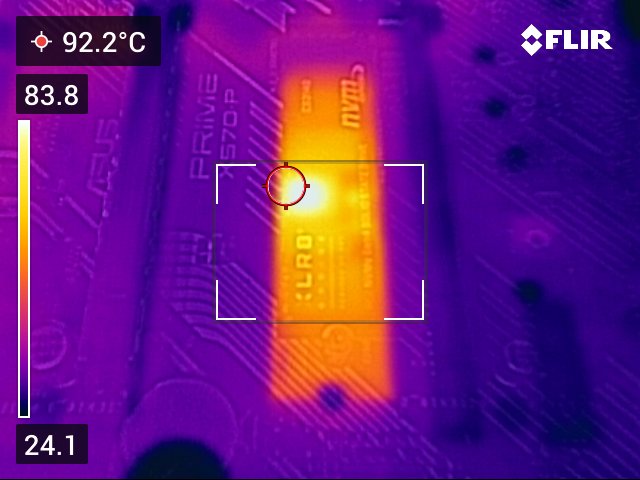

These results are from the non-heatsink variant of the drive. Temperatures top out at 74C because at that point the drive throttles performance fairly hard. If you look at the FLIR photo, you can see a pretty big gap between what the drive self-reports for its temperature and what an external measurement observes. The heatsink variant of this drive alleviates this problem quite effectively, topping out in the mid-60s.
If you are going to push this drive to its limits, you will want at least the heatsink version of the drive, preferably coupled with some actual airflow.
Final Words
Without a heatsink, the PNY CS3140 1TB drive is currently $110 on Amazon and $131 for the heatsink model. This gives the CS3140 something of a pricing advantage over the near-identical drives in the Rocket 4 Plus, which is $160 with a heatsink, as well as the FireCuda 530 which is $140.
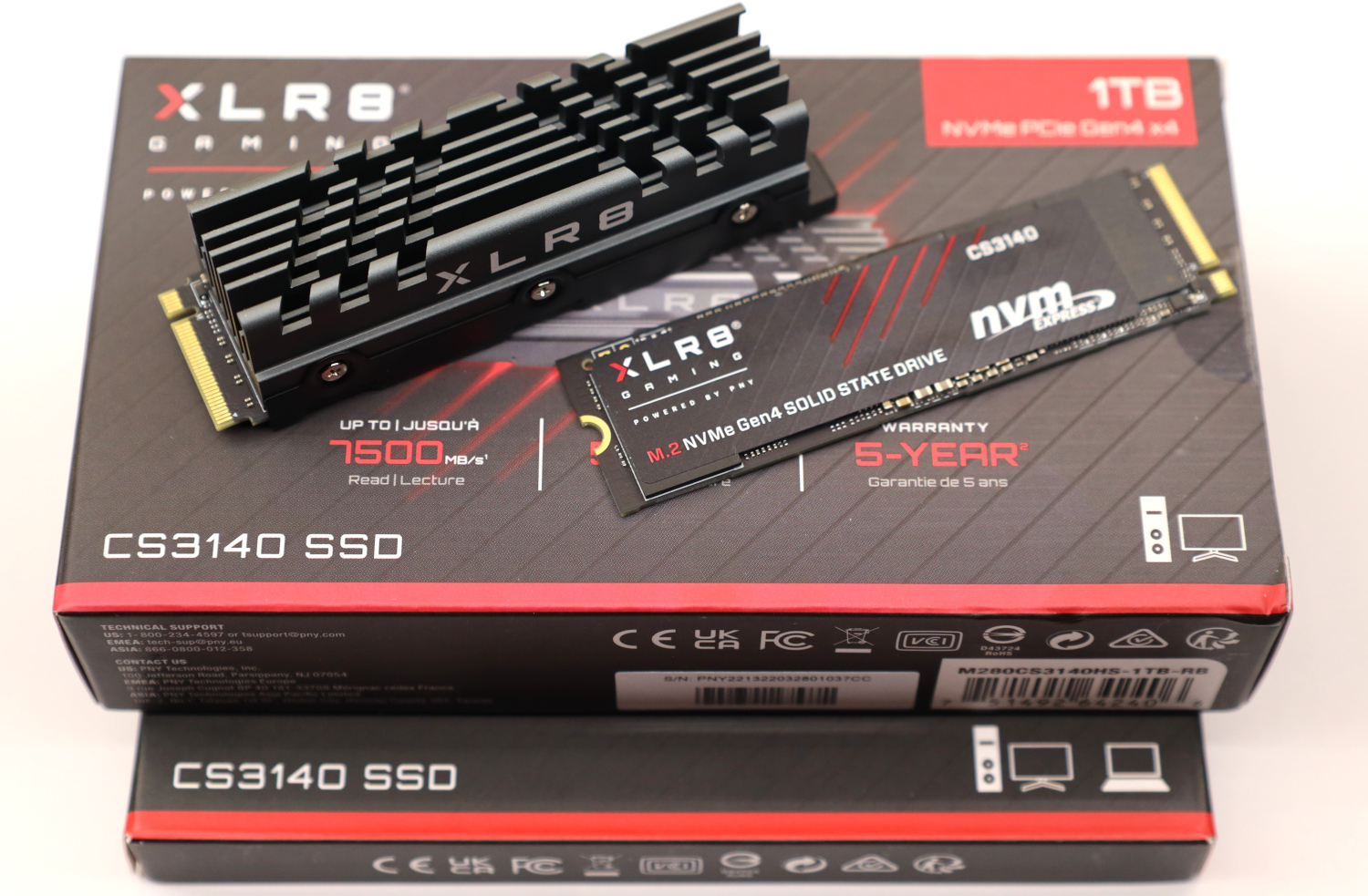
Unfortunately, I will not give the CS3140 my stamp of approval. While the performance is fine and the price is right, I take too much issue with the warranty issues. Between the warranty void sticker for removing the heatsink, the difficult-to-find information regarding endurance ratings, and the lower endurance rating in general, these should be easy things to clean up, but they are not in this case. Until PNY sorts out their spec and warranty information, my recommendation will be to buy the Seagate or Sabrent drives instead. They are nearly the same price for almost identical performance, and they wear their warranty and endurance numbers proudly.


